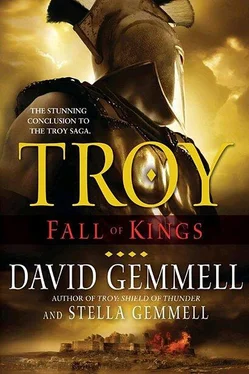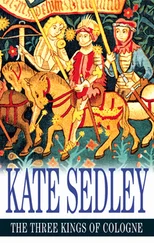Stella Gemmell - Fall of Kings
Здесь есть возможность читать онлайн «Stella Gemmell - Fall of Kings» весь текст электронной книги совершенно бесплатно (целиком полную версию без сокращений). В некоторых случаях можно слушать аудио, скачать через торрент в формате fb2 и присутствует краткое содержание. Год выпуска: 2011, Жанр: Исторические приключения, на английском языке. Описание произведения, (предисловие) а так же отзывы посетителей доступны на портале библиотеки ЛибКат.
- Название:Fall of Kings
- Автор:
- Жанр:
- Год:2011
- ISBN:нет данных
- Рейтинг книги:4 / 5. Голосов: 1
-
Избранное:Добавить в избранное
- Отзывы:
-
Ваша оценка:
- 80
- 1
- 2
- 3
- 4
- 5
Fall of Kings: краткое содержание, описание и аннотация
Предлагаем к чтению аннотацию, описание, краткое содержание или предисловие (зависит от того, что написал сам автор книги «Fall of Kings»). Если вы не нашли необходимую информацию о книге — напишите в комментариях, мы постараемся отыскать её.
Fall of Kings — читать онлайн бесплатно полную книгу (весь текст) целиком
Ниже представлен текст книги, разбитый по страницам. Система сохранения места последней прочитанной страницы, позволяет с удобством читать онлайн бесплатно книгу «Fall of Kings», без необходимости каждый раз заново искать на чём Вы остановились. Поставьте закладку, и сможете в любой момент перейти на страницу, на которой закончили чтение.
Интервал:
Закладка:
Actonion drew his cloak around him and stepped away from the brazier. Glancing back, he said, “Once it is done, get down to the beach as fast as you can. Take any wealth you can carry.”
“Will you be on the ship waiting for us?” Plouteus asked.
“No. I shall remain in Troy for a while, but you will not see me again, Plouteus. Well… unless you fail. Agamemnon King has little time for those who break faith with him. Now best prepare yourself. You have a friend to kill.”
Tobios the jewel merchant hitched his heavy wool cloak up around his neck and stamped his feet against the cold. The early-morning crowd had thinned as people headed off to the eating houses and their midday meals. It had been a good day so far, he thought. The pendant Helikaon had purchased had ensured that, but Tobios also had sold three brooches and an amber bracelet. He was tempted to summon his servants, pack away his stall, and head for home and a warm fire. However, thoughts of the many years he had spent on the borders of ruin and starvation prevented such extravagant behavior. Chilled to the bone, Tobios remained where he was, huddled against the canvas windbreak behind his stall.
There would be time enough for such idle behavior, he told himself, when the winter had set in fully. Then he could spend more time in the workshops, supervising the crafting of brooches and bangles, rings and ornaments. Amber had been popular for several seasons. It would not last. Trojans were fickle when it came to fashion. Five years back it had been rubies, coral, and cloaks and tunics of crimson. Red had been the color. Then, for a short while, black had gained the ascendancy. An Egypteian merchant named Cthosis had perfected a dye that allowed black garments to be washed without the color leaching out. Ebony and obsidian bangles and earrings had been the fashion then among the women of Troy.
Now it was amber. What next? Tobios wondered. Blue was a strong possibility. Lapis lazuli never went entirely out of fashion, and it could be very pricey. The bluer the lapis, the more expensive the stone. Many women—and men, for that matter—had been seduced by being told their eyes were the color of lapis lazuli.
As he was thinking, Tobios caught sight of the Mykene merchant Plouteus and his sons entering the square. He waved a greeting, but immersed in a deep and obviously serious conversation, they did not see him. Perhaps even the notoriously lucky Plouteus was feeling the pressures of this senseless war. So far his ships had escaped either seizure or sinking. That was galling. Not that Tobios wanted to see honest sailors killed on the Great Green, but Plouteus’ luck meant that his trade goods could be sold more cheaply. That kept prices down, cutting margins and lowering profits.
Others of the merchant group were growing envious of the man, but Tobios had no time to waste on such destructive emotions. Plouteus was, it was said, a religious man, paying homage to many gods. In return, perhaps, they were favoring him. Tobios dearly would have liked to bribe the gods of this land, but if he did, there was no doubt the Prophet would hear of it. If that happened, death surely would follow—or worse. Some years back, it was said, the Prophet had cursed a man and given him leprosy. And one of Tobios’ servants told the story of a man who annoyed the Prophet and woke up the following morning blind in both eyes.
Better to risk the wrath of anonymous gods who might or might not exist than to anger the Prophet, who certainly did.
The Scythe was blowing hard now, hissing around and beneath the windbreak. Tobios retrieved his old woolen cap from the shelf below his stall and tugged it over his dyed red hair.
As he straightened, he saw the king’s son Paris heading toward him. The boy was wearing armor and carrying a dented helm. Tobios cast his gaze around the marketplace, seeking the plump Helen, who usually walked with him. They were a sweet couple, and Tobios liked them. Helen was a plain, matronly woman with mousy hair and a sweet smile. Her husband obviously adored her. Whenever he shopped alone, he would buy the most extravagant pieces for her: jewels that only a beautiful woman would dare to wear. The following day she would return and exchange them quietly. Helen’s taste was for the simple. She chose brooches for the shape of the stone or the beauty of the grain, preferring works in silver to those in gold.
Tobios smiled at the young man as he approached the stall. “A chill morning, lord, to be sure,” he said.
“I envy you your cloak, Tobios,” Paris responded. “Armor does not keep out the cold.”
“So I have been told, lord. Are you expecting a battle today?”
Paris gave a boyish grin. “If there were one, Tobios, I would be as much use as feathers on a fish.”
“Skill at fighting is much overrated,” Tobios confided. “In my long life I have discovered that to be fleet of foot is infinitely superior to having skill with weapons. Though better than both is to be quick-witted.”
“Have you been in many wars?” Paris asked as he examined a bangle of cunningly sliced amber.
“Too many, sir.” Tobios shivered as dark memories assailed him. Changing the subject, he said: “That piece you hold was crafted by my grandson. It is the first competent example of the skills to come.”
Out of the corner of his eye Tobios saw Helikaon moving through the crowd. He frowned. He hoped that Helikaon had not come to return the pendant he had bought. Returning his attention to Paris, he waited patiently as the young man examined another bracelet more closely. It was fashioned of braided silver wire wrapped around and through seven small fire opals. Young Aaron was becoming a fine craftsman.
“If I may make so bold, lord, the lovely Helen would find this piece especially appealing.”
Before Paris could answer, the air was rent with a piercing shout. “Father! No! It is not him!”
Tobios peered around and saw the portly Plouteus fighting with Helikaon. For a heartbeat it looked comical: a fat middle-aged merchant in a crimson, ankle-length tunic grappling next to a pie stall with a slender white-garbed warrior.
As Tobios looked more closely, he saw that the warrior was not Helikaon. It was Prince Deiphobos, one of Priam’s bastard sons, known as Dios. Tobios wondered why a placid man like Plouteus would risk insulting a king’s son, but then a spray of red spattered across Dios’ tunic. Sunlight glittered on the bright blade in Plouteus’ hand. Dios reached out to grab Plouteus’ wrist, but the merchant wrenched his hand loose of the grip and plunged the blade again into Dios’ chest. The victim’s clothes were blood-drenched now, and rivulets of red streamed down his legs. Yet still he fought on. Plouteus’ sons rushed in. Tobios thought they had come to pull their father clear. Instead they, too, drew knives and began to hack at the injured prince.
“Paris! Paris!” Dios shouted, and Tobios saw him reach out to his brother. Then another blade slammed into his body, and he doubled over, blood spewing from his mouth.
Tobios glanced at Paris. The young prince was standing statue-still, frozen in shock and fear. Tobios snatched Paris’ sword from its scabbard and ran at the killers, shouting at the top of his voice, “Murderers! Assassins!”
Plouteus’ youngest son swung toward Tobios. There were blood splashes across his face, and the skinning knife he held dripped gore. He looked at the jewel merchant, then dropped his blade and ran. The oldest son grabbed his father and was pulling him away when the redheaded merchant arrived. Tobios lashed out with the sword blade. It caught the young man high on the temple, slashing the skin and sending blood spraying. He fell sideways, then staggered several steps.
“Assassins!” Tobios shouted again. “Hold them!” Another stall holder ran up behind the injured assailant and hit him with a club. He pitched forward unconscious.
Читать дальшеИнтервал:
Закладка:
Похожие книги на «Fall of Kings»
Представляем Вашему вниманию похожие книги на «Fall of Kings» списком для выбора. Мы отобрали схожую по названию и смыслу литературу в надежде предоставить читателям больше вариантов отыскать новые, интересные, ещё непрочитанные произведения.
Обсуждение, отзывы о книге «Fall of Kings» и просто собственные мнения читателей. Оставьте ваши комментарии, напишите, что Вы думаете о произведении, его смысле или главных героях. Укажите что конкретно понравилось, а что нет, и почему Вы так считаете.












